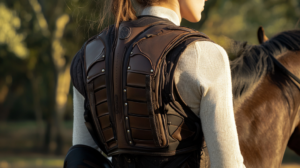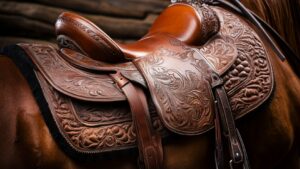Are you thinking about purchasing your dream horse? Whether you’re eyeing a beautiful white horse or a striking black horse from some of the world’s finest breeds, evaluating the expenses ahead of time is important. While you might find a pony or horse to rescue or adopt for a few hundred dollars initially, that initial price represents only a small portion of the overall cost. So, what are the actual expenses of horse ownership?
The cost of owning a horse varies widely depending on location, breed and age, boarding arrangements, and the required care level. According to experts, the annual expenses can range from several thousand to tens of thousands of dollars. Beyond initial purchase costs, ongoing expenses include feed, veterinary care, farrier services, and equipment. Experts emphasize the importance of realistic budgeting and being prepared for the financial responsibilities associated with horse ownership, ensuring the welfare and well-being of the animal without undue financial strain on the owner.
Although performance horses may cost hundreds of thousands of dollars, you can purchase a horse today for $10,000 or even as low as $100. Yes, the average cost of a horse seems affordable, but keeping and feeding it comes at a higher price. According to a horse ownership survey conducted by the University of Maine, the average annual cost of owning a horse is $3,876 per horse. Where does that huge amount go? And what affects the price of horse ownership? Let’s dig deeper to find out what and why.
A Horse Ownership Cost Breakdown
Food and Supplement
A massive portion of the expenses of owning a horse goes toward its food. Most adult horses weighing 1,000 to 1,100 pounds can consume around 1.5 to 2.5% of their body weight daily in hay and grain, which means a lot of forage. A hay bale can cost $4-11 per bale, but it can be as high as $25 in some areas experiencing drought. Depending on your equine’s need per the vet’s recommendation, you may also need to supplement your horse. A six-month supply of loose mineral supplements may cost $30.00 or 0.17 per day.
Food Cost: $4-11 per bale or more
Boarding Costs
However, it’s not only feeding a horse that can be costly. Keeping it will cost you more money, especially if you don’t have your land to keep it on. Not all of us can provide space or afford to keep our horses in our place, so boarding at a local stable is an attractive option. The monthly fee varies considerably depending on the location, facilities, and services a stable offers. Remember, the boarding fees of stables in urban areas are usually more expensive than in rural areas.
A full boarding option where all your horse’s daily needs will be provided by the stable can cost somewhere between $300 to $700 or more per month. That sounds like a lot, so if you want to save money, you can opt for a self-care board where the facilities will be provided, but you have to care for the pony. This option may only cost you around $100 to $200 per month, but you must provide the food and bedding and travel to the stable several times a day to care for your horse. If neither of these options suits your needs, you can also opt for a pasture board or partial boarding, which are more affordable than a full-care board.
Boarding Cost: $100 to $700 per month or more
Training
The training costs depend on the training you and your horse need. A professional trainer may charge $45 to $80 per hour or more, depending on the trainer’s goal and experience.
Horse Training Cost: $45 to $80 per hour
Health Care Costs
Veterinary Care
Maintaining your equine pet’s health is also valuable, as it can make a difference in its lifespan. You surely don’t want to lose your horse worth $50,000 or more just because of an illness that a visit with your vet could prevent. Here’s how much you might spend on your horse’s veterinary needs.
Vaccinations
Vaccines can help protect your horse against deadly illnesses and other widespread diseases, including tetanus, rabies, Eastern and Western encephalitis, and West Nile virus. Vaccines for other diseases like influenza, Potomac horse fever, anthrax, and more may be needed depending on the veterinarian’s recommendation. But, competition horses at higher risk of exposure to contagious respiratory viruses surely need a boost of respiratory vaccines twice a year.
Horse owners must also consult a vet to know what diseases are prevalent in their region where they’ll travel and vaccinate their pets accordingly. Core vaccinations cost around $22 to $47 or more depending on the type. Coggins testing, a requirement for traveling, costs $37 to $87, depending on urgency. You may also have to pay for a health certificate for about $40 and microchipping for around $60 or less.
Vaccine Cost: $22 to $47 or more
Deworming
Deworming is also critical for your horse’s health because even if parasites are naturally part of your pet’s intestine, and some are beneficial, others can be fatal. The most common parasites are bloodworms, tapeworms, roundworms, pinworms, and bots. Suppose your horse is experiencing loss of appetite, colic, fever, anemia, sudden weight loss, and other infection symptoms. In that case, you need to consult a vet for a proper diagnosis through a fecal exam to determine the type of worm that has caused the illness and the appropriate treatment. Deworming every three months may cost $0.20 per day or more.
Dental Care
Your equine will have difficulty eating if its mouth hurts, so checking your horse’s teeth annually is essential to help it stay useful as it grows older. Serious health issues like tooth abscesses or cancer can also be spotted earlier if it has a regular dentist checkup. Most horses must also get their teeth corrected and floated yearly or every six months. You may have to pay the dentist around $80 to $250 a year, but it can save you some money in the long run.
Dental cost: $80 to $250 per year
Grooming
Horses with long, flowing manes and tail hair, like Friesians, need regular grooming to look neat and beautiful, and it can cost you around $10 to $125 or more, depending on the services provided.
Grooming Cost: $10 to $125
Hoof Care
Regular farrier visits are also necessary for horses because their hooves need proper trims to prevent abnormal hoof balance and other health issues that can lead to collapsed heels and arthritis. Wilson states, “Maintaining balanced, healthy hooves is like keeping your vehicle tires in great condition.” Prices can vary depending on the horse’s lifestyle, type of shoe, and other additional farrier services. Hoof trimming costs around $30 to $75 per visit, while shoeing costs $75-300. You can expect to pay more for corrective shoeing as it requires additional care and work.
Total Farrier Cost: $105-375 every 6 to 8 weeks
Tack and Equipment
When riding your horse, you need tack and equipment to make you and your horse more comfortable, thus requiring you to invest more. A bridle and tack can cost around $100, while a saddle and saddle pads cost $3,000 and $75. Your horse also needs a blanket to keep it warm during cold seasons, costing $140 to $600. Your horse may also need more than one blanket design to adapt to different environmental conditions. Thus, you may need to spend more than you initially expected.
Manure Removal
According to Krishona Martinson, Ph.D., an equine specialist at the University of Minnesota, a horse weighing 1,000 pounds excretes 50 pounds of manure and urine daily. These manures need to be disposed of properly. There are many ways to do so. Some owners invest in a compost bin to convert it into fertilizer and on the fields. Depending on the size, others opt for dumpsters costing around $55 to $238 per load. Another option for horse owners is to hire a hauling company to remove the manure off-site once or twice a year, which might demand $100-300 per horse per year.
Manure Removal Cost: $55 to $300 per year
Horse Insurance
Your horse is an investment, and it is undoubtedly valuable. Thus, it’s a smart choice to get insurance. It provides financial relief since it can cover illness, injuries, and even mortality costs. The horse’s breed, age, specialty, and sale value influence annual insurance policy cost, but it is typically 2.9 to 4.5 percent of the horse’s value.
Licensing and Registration
Getting your horse registered for competitions like dressage, racing, and other equine events would require you to pay a certain amount. A dressage horse registration, for example, can cost around $35.
Cost: $35 or more
Owning a horse is costly. And unless you’re ready to spend $3,876 or more annually for 25 or more years, you’re probably not ready for this lifetime commitment. But if this amount fits your budget, go ahead and live your dream. If not, why not check out other options that can satiate your desire, like joining horseback riding lessons and horse camps? These options are less expensive but offer a fun riding experience and adventure without breaking the bank.





